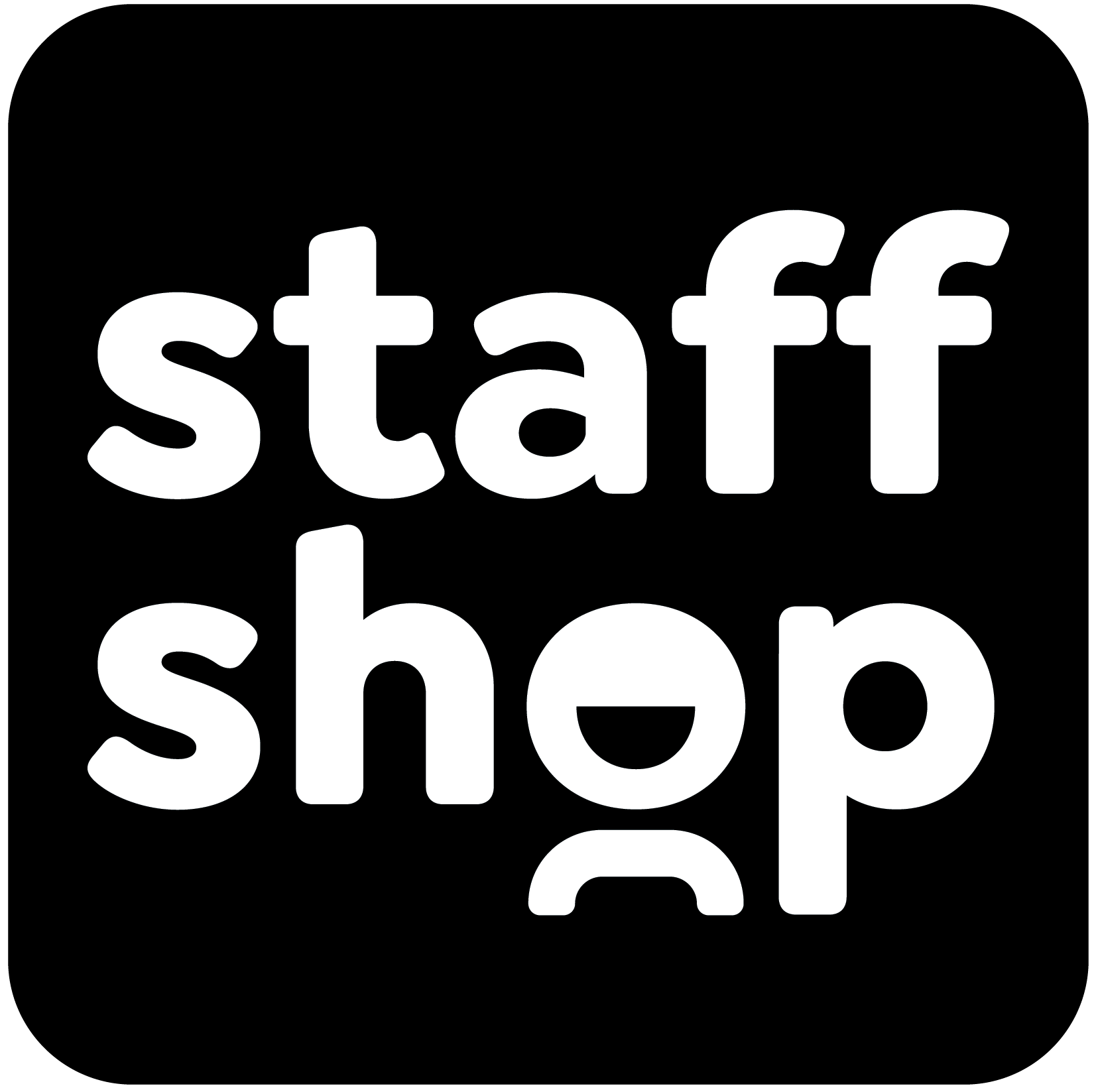“Do not wait for extraordinary circumstances to do good action; try to use ordinary situations.” — Jean-Paul Richter
April is Earth Month and we here at Staff Shop feel this is the perfect opportunity to share some tips on how to live a more sustainable lifestyle without breaking the bank. We have been gifted this beautiful planet and we should all pitch in and make small, but impactful changes in our lives to make things a little bit better.
This four-week guide will give you tips on different areas of your life where you can make improvements.
Being mindful of your habits doesn’t have to cost a lot. With the cost of living being so high, it certainly doesn’t hurt to learn that you can save some money while also being a bit more eco-conscious.
Week 1: Laundry
 Whether you are a single person or a family of four (or more), you will have laundry! While new washers and dryers are much more energy efficient than older models, they still use a considerable amount of energy and water. For week 1, try making these simple changes:
Whether you are a single person or a family of four (or more), you will have laundry! While new washers and dryers are much more energy efficient than older models, they still use a considerable amount of energy and water. For week 1, try making these simple changes:
- Use cold water – According to the American Cleaning Institute (ACI), 90% of the energy a washing machine uses goes towards heating the water! You can save 1,600 pounds of carbon dioxide a year by switching to cold water! You will also notice the difference on your energy bills! Bonus benefit: cold water is typically better for your clothes. Colours are less likely to bleed in cold water. Clothes are also less likely to shrink when washed in cold.
- Try detergent sheets – There are so many innovative products out on the market now! One product you may want to look into is laundry detergent sheets. They come in a cardboard box and are dissolvable sheets, rather than a plastic bottle of detergent. This means less waste. There are several brands available. You can also buy reusable dryer sheets and dryer balls that will replace the single-use version.
- Do full loads – It’s better to do a full load of laundry than several smaller loads. While you shouldn’t overfill your machines, you want to always be washing the maximum amount of clothes at once.
- Hang your clothes to dry – If you have a backyard, install a clothesline. If you live in a condo or apartment building, get a foldable clothes drying rack. In addition to being better for the environment, air drying will make them last longer. Heat can damage the fibers in your clothes. Heat can also shrink clothes. So, in the end, your clothes will fit better and last longer.
Week 2: Cleaning
 Much like laundry, we all need to clean our houses. From cleaning up accidental spills to deep cleaning your bathroom or kitchen top to bottom, there are some changes we can all make to reduce the amount of wash we create.
Much like laundry, we all need to clean our houses. From cleaning up accidental spills to deep cleaning your bathroom or kitchen top to bottom, there are some changes we can all make to reduce the amount of wash we create.
- Replace single-use items – Many of us use convenience items, such as paper towels or disposable duster cloths because it’s easy. But those items add up when it comes to replacing them. Try using reusable cloths, dusters and mops. Many of these can be washed in the laundry, and are relatively inexpensive to buy versus having to replace the single-use varieties so often. Paper towels are made using trees, but cannot be recycled, so they end up in landfill.
- Use non-toxic or DIY cleaners – Be mindful of the ingredients in your household cleaning products. There are greener alternatives available at the store, however if you’re conscious of the price, try making your own at home. Vinegar, baking soda and lemon are all great ingredients for homemade cleaning products. Find some recipes online. Use glass bottles and jars to store them, rather than plastic.
Week 3: Meals
 For week 3, we’re going to tackle food waste. The way we eat can really impact the earth. But the good news is, you can make smart choices and reduce the waste. The cost of food is so high right now, you want to be as economical as possible.
For week 3, we’re going to tackle food waste. The way we eat can really impact the earth. But the good news is, you can make smart choices and reduce the waste. The cost of food is so high right now, you want to be as economical as possible.
- Eat leftovers – Whether you’re reheating previous meals, packing them for lunches or turning them into something new, it’s always a good idea to use your leftover meals. You want to reduce the amount of food waste you create. And if you have to toss something out, use your green organics bin if you have one or compost.
- Meal prep – Many people meal prep for their health, but it can also be good for the health of the planet. When you meal prep, you create a shopping list and adhere to it. You only make the recipes that you need for the week, carefully planning portions, thus reducing waste. This can also save you money at the grocery store, because you’re buying only what you need. You can base what you’re going to make that week on what’s on sale at the grocery store. It’s a win-win.
- Buy less packaged goods – If you can avoid it, shop for fresh, less packaged items at the grocery store. Put fresh fruits and vegetables in reusable net bags. Try to buy dry goods in bulk sections, and use your own containers to refill.
Week 4: Transportation
 For the last week of our 30 day sustainability challenge, we’re going to tackle transportation. We recognize that this one will depend on the community you live in. People in rural areas might have a harder time doing all of these things, but the important thing to do is try!
For the last week of our 30 day sustainability challenge, we’re going to tackle transportation. We recognize that this one will depend on the community you live in. People in rural areas might have a harder time doing all of these things, but the important thing to do is try!
- Take public transportation – Rather than relying on a car to get you everywhere, consider using public transportation to get to and from work. If you live in an urban centre, using the bus, streetcar or subway can reduce the number of cars on the road, especially during rush hour. If you commute from the suburbs, take the train if one is available to you. It’s less of a headache for you, having to sit in traffic!
- Carpool – Are a bunch of you all going to the same location? Take one car rather than several. Carpool to work, concerts, dinners out, etc.
- Use active transportation – If you are able to, walk. If you just need to pick up one thing at the corner store, walk or ride a bike. Many communities have bike share programs that allow you to rent a bicycle to get around town. This is a great alternative to taking a cab or using a rideshare app.
- Work from home – While you might not get a say in the matter, we here at Staff Shop are advocates for remote work. If you have a choice, working from home reduces the need to drive or commute on transit to work. To give you an example, when remote work started during the COVID-19 Pandemic, Greenhouse Gas emissions fell by 25% in the morning and 34% during the evening, according to Breathe London. Working from home also puts more money in your pocket, because you’re not burning as much gas in your car or paying to take transit as often.
There you have it! A 30 day plan to help you live more sustainably without impacting your lifestyle too much.
Contact Us
Did you find these tips helpful? Do you have any tips of your own? Contact us today to share!

